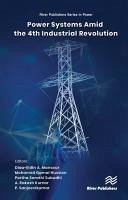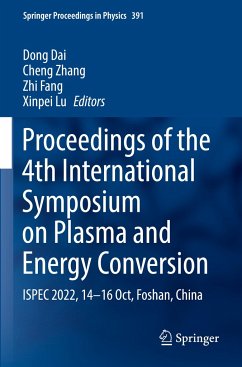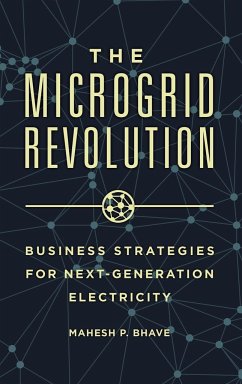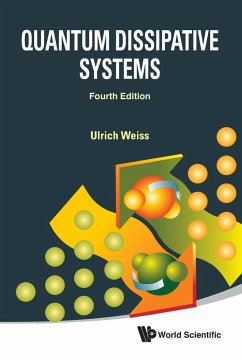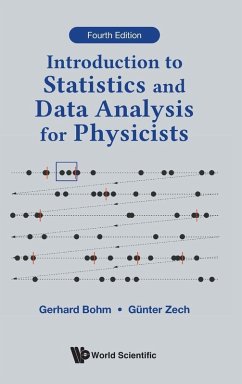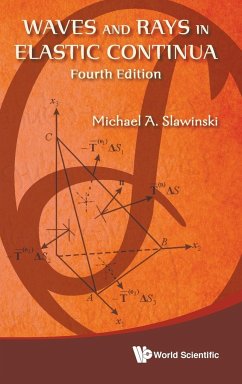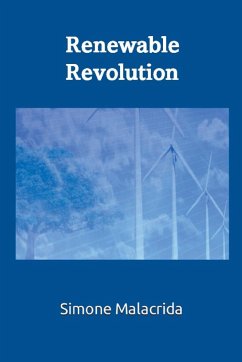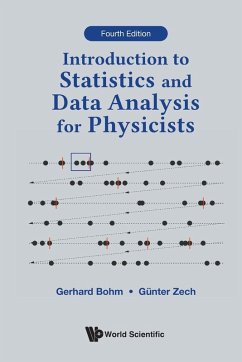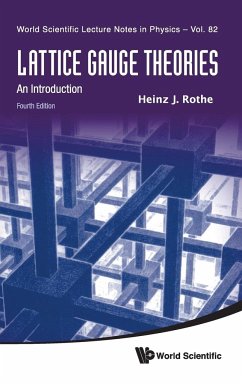Gebundenes Buch
Power Systems Amid the 4th Industrial Revolution
Versandkostenfrei!
Versandfertig in 1-2 Wochen
Weitere Ausgaben:

PAYBACK Punkte
75 °P sammeln!




This book discusses the operation of power systems amid the 4th industrial revolution and the value of Industry 4.0 technologies to grid operators and end customers.
Dr. Diaa-Eldin A. Mansour was born in Tanta, Egypt in 1978. He received his B.Sc. and M.Sc. degrees in Electrical Engineering from Tanta University, Tanta, Egypt, in 2000 and 2004, respectively, and his Ph.D. degree in Electrical Engineering from Nagoya University, Nagoya, Japan, in 2010. Since 2000, he has been with the Department of Electrical Power and Machines Engineering, Faculty of Engineering, Tanta University, Egypt, where he has been a professor since 2020. He is currently working as a professor in Electrical Power Engineering Department, Egypt-Japan University of Science and Technology (E-JUST), Alexandria, Egypt, on leave from Tanta University. His research interests include high voltage engineering, condition monitoring of electrical power equipment, IoT applications in electrical power systems, and applied superconductivity. He twice received the Best Presentation Award from IEE of Japan in 2008 and 2009, the Prof. Khalifa Prize from the Egyptian Academy of Scientific Research and Technology in 2013, the Tanta University Encouragement Award in 2016, the Egypt-State Encouragement Award in the field of engineering sciences in 2018, and the Tanta University Citations Award in 2021. Recently, he was listed among the world's top 2% of scientists by Stanford University, USA, in 2020, 2021 and 2022. Dr. Mohamed Gamal Hussien received his B.Sc. and M.Sc. degrees from the Department of Electrical Power and Machines Engineering, Faculty of Engineering, Tanta University, Egypt in 2011 and 2016, respectively, in Electrical Engineering. In 2020, he received his Ph.D. degree from Huazhong University of Science and Technology, China. Dr. Hussien is currently an Assistant Professor at the Department of Electrical Power and Machines Engineering, Faculty of Engineering, Tanta University, Tanta, Egypt. He has published scientific papers in both international conferences and high-quality SCI journals. He is currently an Associate Editor for the journal IET Renewable Power Generation. He is also currently an Academic Editor for the International Transactions on Electrical Energy Systems journal. He serves as a reviewer for IEEE conferences and many IEEE transactions journals. He is a member of the IEEE-IES Electric Machines Technical Committee and a member of the IEEE-IES Technical Committee on Renewable Energy Systems. His paper has been selected as one of the best papers published in the period 2019-2020 in IEEE Transactions on Energy Conversion in the "power generation systems and grid interfaces" area. He has also received the award of Best Paper from the IEEE IAS GUCON 2021 conference. Dr. Partha Sarathi Subudhi completed his B.Tech. in Electrical Engineering from Biju Patnaik University of Technology, Odisha, India in 2012 and M.Tech. in Power Electronics and Drives from Vellore Institute of Technology, Chennai, India in 2015. He gained his Ph.D. with the School of Electrical Engineering (SELECT), Vellore Institute of Technology (VIT), 2015-2020. He also served as a Teaching cum Research Assistant at the same time. Currently, he is an Assistant Professor with the Department of Electrical Engineering, Bajaj Institute of Technology, Wardha, Maharashtra, India. He is an Editor of International Journal of Power and Energy Systems, and Editor of DGAEJ, River Publishers. Dr. Subudhi is a senior member of IEEE, a member of the IEEE Technical Committee (TC 9) on Wireless Power Transfer Systems, a member of IEEE Technical Committee (TC 12) on Energy Access and Off-Grid System, a member of the IEEE PELS Educational Videos Committee, and a life member of ISTE and IEANG. His fields of interest include wireless power transfer, electric vehicle charger, residential nano grid, solar power generation system, hybrid converters, and their applications. Dr. A. Rakesh Kumar completed his B.Eng. with honors in Electrical and Electronics Engineering from Anna University, Chennai, India in 2011 and M.Eng. in Power Electronics and Drives from Anna University, Chennai, India in 2013. He worked as Assistant Professor with the Department of EEE, Rajalakshmi Engineering College, Chennai, India from 2013 to 2015. He then went on to a full-time PhD with the School of Electrical Engineering (SELECT), Vellore Institute of Technology (VIT) from 2015 to 2019. He also served as Teaching cum Research Assistant at the same time. Subsequently, he completed his Post-Doctoral Fellowship from National Institute of Technology Tiruchirappalli, India. He is an Assistant Professor in the Department of EEE, KPR Institute of Engineering and Technology, India. He is an IEEE Senior member and he is actively engaged with the IEEE Power Electronics Society. He is also a member of the IEEE PELS Educational Videos Committee and the Managing Editor of IEEE Educational Videos on Power Electronics. His fields of interest include multilevel inverters, inverter modulation techniques, and nanogrids and their applications. Prof. Sanjeevikumar Padmanaban is a Full Professor in Electrical Power Engineering with the Department of Electrical Engineering, Information Technology, and Cybernetics, University of South-Eastern Norway, Norway. He has authored over 750+ scientific papers and received Fellow of the Institution of Engineers, India, the Institution of Electronics and Telecommunication Engineers, India, and the Institution of Engineering and Technology, UK. He received a lifetime achievement award from Marquis Who's Who, USA 2017 for contributing to power electronics and renewable energy research. He is listed among the world's top 2% of scientists (from 2019) by Stanford University USA.
Produktdetails
- Verlag: River Publishers
- Seitenzahl: 174
- Erscheinungstermin: 12. Juli 2024
- Englisch
- Abmessung: 240mm x 161mm x 14mm
- Gewicht: 432g
- ISBN-13: 9788770226769
- ISBN-10: 8770226768
- Artikelnr.: 70382192
Herstellerkennzeichnung
Libri GmbH
Europaallee 1
36244 Bad Hersfeld
gpsr@libri.de
Für dieses Produkt wurde noch keine Bewertung abgegeben. Wir würden uns sehr freuen, wenn du die erste Bewertung schreibst!
Eine Bewertung schreiben
Eine Bewertung schreiben
Andere Kunden interessierten sich für



